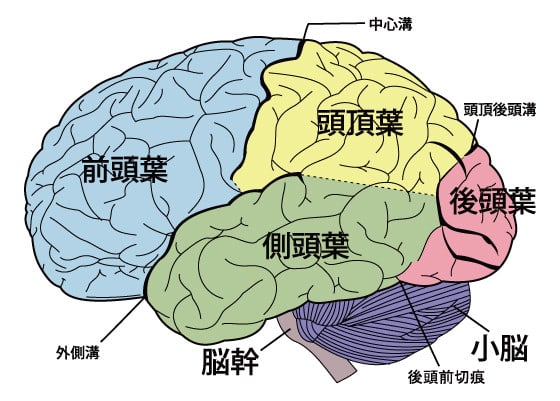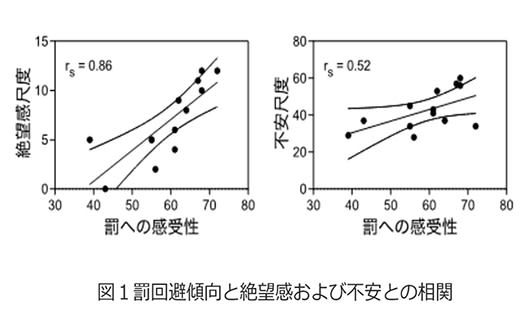


最近、脳科学者の中野信子さんがメディアでブレークしている。わたしはNHK-BSの歴史勉強番組「英雄たちの選択」の大ファンで、ここに彼女はときどき出演されている。で、歴史上の人物の脳の働き方目線でユニークな気付きを与えてくれている。歴史人物の行動規範とか、人物分析にまったく新たな解析手法で迫ってくれて非常に説得力がある。美貌でクールな意見を発出されるので凡百はコロッと説得されやすい傾向にある、なのですね(笑)。
で、最新研究領域に近い「脳科学」というものの広報役を担っているように思える。ある番組で彼女は日本人のDNA的な分析結果として「非常に心配性である」と語られていた。そこでそういった研究について調べていたら、量子科学技術研究開発機構という組織の研究論文に突き当たり、そのなかでもQ-LEAP量子生命Flagshipプロジェクトという興味深い研究成果を知った。
論文のサブタイトルには「過度に失敗を恐れて行動が消極的になりがちな人の脳で何が起きているか? ―行動の動機づけシステムに基づく不安障害やうつ病の治療の実現に有用な知見」という長大なもの。https://www.qst.go.jp/site/q-leap/press220322.html
「国立研究開発法人・量子科学技術研究開発機構(理事長平野 俊夫)量子生命・医学部門量子医科学研究所脳機能イメージング研究部(主は量子生命科学研究所量子認知脳科学グループ)の山田真希子グループリーダー、および千葉大学大学院医学研究院脳神経内科学の小島一歩医師、平野成樹診療准教授、桑原聡教授らの共同研究グループは、罰を回避する行動にセロトニン神経伝達機能が関わっていることを発見した」のだそうです。<論文発出:2022年3月22日>
さらに「人間を含む動物の行動は、目標達成や報酬獲得のために“行動を賦活する系”と“罰や損害を回避するために行動を抑制する系”の大きく二つの動機づけシステムによって制御されていると考えられています。行動を抑制する系(行動抑制系)は、人間においては不安や抑うつなどの負の感情と関連していますが、行動抑制系に関して脳で何が起きているかは明らかにされていません。」とのこと。
人類というのは地球の全大陸を制覇するのに際して常にフロンティアスピリットを昂進させてきた存在であり、それは「チャレンジする魂」が根幹だろうと思える。日本人にはこのチャレンジすることを積極化させることに関与する脳内物質少ないという。むしろ相反する傾向である「心配性であること」に関与する脳内物質「セロトニン」の発出量が世界で有数に高いのだという研究結果。世界一般では50%以下であるのに、日本人は80.2%なのだと。
・・・面白い(笑)。こういう領域研究って経営や組織・人事運営に深く関わることが確実だと思う。目からウロコというか、そういった整理整頓が可能なのであれば非常に有用な研究領域。たしかに歴史の決定論解明にも、民族傾向の分析・把握、さらには組織運営にも非常に有益かと。
う〜む、このことがら、ちょっと深掘りしてみたい。・・・
English version⬇
80.2% of Japanese are reluctant to take on new challenges due to fear of failure.
The "national character" is often expressed in a positive way, but it also suppresses a "challenging" mindset. A research paper published on March 22, 2022, which is also significant for management. ...
Recently, brain scientist Nobuko Nakano has been getting a break in the media. I am a big fan of the NHK-BS history study program "Heroes' Choice," in which she sometimes appears. She sometimes appears on the NHK-BS history study program, "Heroes' Choice," and gives us unique insights from the perspective of how the brains of historical figures work. She is very convincing in her analysis of historical figures and their codes of conduct, using a completely new analytical method. He is a beautiful man with cool opinions, and ordinary people tend to be easily persuaded by him (laughs).
She seems to be playing a publicity role for "brain science," which is close to the latest research field. In one of the programs, she mentioned that Japanese people are "very anxious" as a result of DNA analysis. In researching such research, I came across a research paper by the Quantum Science and Technology Agency (QSTA) and learned of an interesting research project called the Q-LEAP Quantum Life Flagship Project.
The subtitle of the paper is "What is happening in the brains of people who tend to be overly fearful of failure and reluctant to act? -Significant findings useful for the realization of treatment of anxiety disorders and depression based on motivational systems for action" lengthy.
https://www.qst.go.jp/site/q-leap/press220322.html
A research group led by Makiko Yamada, group leader of the Functional Brain Imaging Research Department (mainly the Quantum Cognitive Neuroscience Group of the Quantum Medical Science Institute of the National Institute of Quantum Science and Technology (President: Toshio Hirano), and a joint research group led by Dr. Kazuho Kojima, Dr. Shigeki Hirano, and Professor Satoshi Kuwahara of the Department of Neurology, Graduate School of Medicine, Chiba University, has discovered that serotonin neurotransmission is involved in punishment avoidance behavior. They found that serotonin neurotransmitter function is involved in punishment avoidance behavior. <Paper published: March 22, 2022>.
Furthermore, "It is thought that the behavior of animals, including humans, is controlled by two major motivational systems: a system that "activates behavior" to achieve goals and obtain rewards, and a system that "inhibits behavior to avoid punishment or damage. The "behavior suppression system" is thought to be controlled by two major motivational systems. The system that inhibits behavior (behavioral inhibition system) is associated with negative emotions such as anxiety and depression in humans, but what is happening in the brain with respect to the behavioral inhibition system is not clear. He said.
Human beings have always been exhilarated by the frontier spirit in conquering all continents on the earth, and it seems to me that the "spirit of challenge" is at the core of this spirit. It is said that Japanese people have few substances in their brains that are involved in actively taking on challenges. In fact, research shows that the amount of serotonin, a brain substance involved in the opposite tendency, "being anxious," is one of the highest in the world. The Japanese have a serotonin level of 80.2%, compared to less than 50% in the rest of the world.
This is interesting. I am sure that this kind of research is deeply related to management, organization, and human resource management. It is a very useful area of research if it is possible to sort out the scales, or rather, to organize them. Indeed, it would be very useful in elucidating the determinants of history, in analyzing and understanding ethnic trends, and in organizational management.
Hmmm... I would like to dig a little deeper into this matter. I would like to explore this topic in more depth.



















